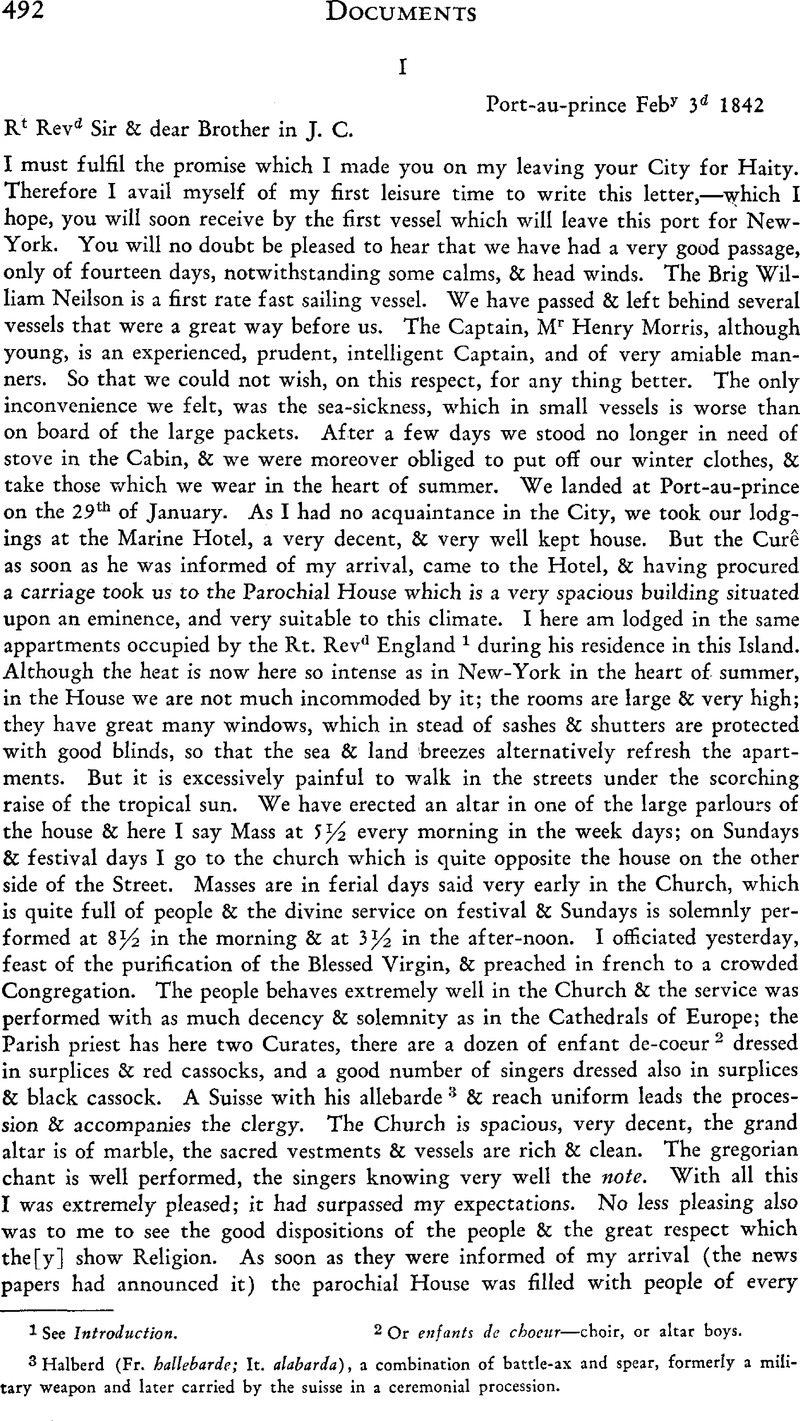No CrossRef data available.

1 See Introduction.
2 Or enfants de choeur—choir, or altar boys.
3 Halberd (Fr. hallebarde; It. alabarda), a combination of battle-ax and spear, formerly a military weapon and later carried by the suisse in a ceremonial procession.
4 Jean Pierre Boyer, born at Port-au-Prince, February 28, 1776, and educated in France. Joining the Haitian army, he served under Rigaud during the English invasion of the island, but fled to France during the ascendancy of Toussaint l’Ouverture. In 1802 he returned to Haiti with Leclerc’s expedition, but later went over to the native forces and was active in the final expulsion of the French. After Henri Christophe’s coup d’tat (1806) Boyer gave his support to Alexandre Pétion’s efforts to establish the Republic of Haiti, and upon Pétion’s death in 1818 succeeded in having himself proclaimed president for life. By 1822 he had imposed his rule on virtually the entire island. Although he emancipated the slaves, secured the recognition of Haitian independence abroad, and attempted to inaugurate internal economic and social reforms, his rule was never popular throughout the whole island. In fact, there is some reason to suspect that his anxiety to adjust ecclesiastical affairs was prompted by the desire to secure the support of the Church for his régime. But rebellion arose in 1843, before this could be accomplished, and Boyer took refuge in Jamaica, and later in Paris, where he died on July 9, 1850.